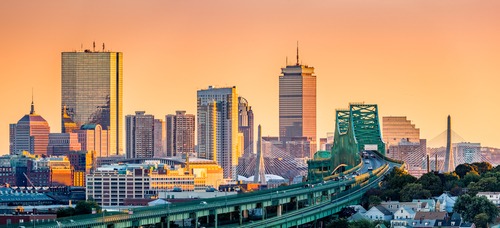
A new report from the MASSPIRG Education Fund and Frontier Group outlines several ways to transform transportation infrastructure in Massachusetts to lead to better health outcomes for the state’s residents.
According to the report, the Massachusetts car-centric transportation system causes numerous harmful health impacts, including lung cancer, stroke, heart disease, asthma, and dementia caused by pollution and diabetes, cardiovascular disease, osteoporosis, high blood pressure, and higher levels of stress caused by long car commutes.
“Our current transportation system is wreaking havoc on our health and the health of our planet,” said MASSPIRG Transportation Advocate and report co-author John Stout. “Decades of car-centered investment strategies have left us with inefficient and dangerous transportation infrastructure.”
The report found that air pollution killed an estimated 1,500 Massachusetts residents each year. Additionally, vehicle crashes kill 325 residents each year and injure several thousand more.
During the COVID-19 pandemic, lockdowns and stay-at-home orders caused a record decline in driving, accompanied by an increase in the number of people walking, cycling, and opting for other active modes of transportation, the report found. These factors led to a decrease in daily carbon dioxide emissions by about a third across the United States.
“Almost half of the global drop in emissions during the pandemic was attributable to the decline in road traffic alone. As we emerge from the pandemic, we have choices to make. With the right policies, we can deliver huge benefits for public health and the environment by making it easier and safer for Americans to drive less and live more,” said report co-author James Horrox of Frontier Group.
According to the report, transforming the state’s transportation system could take those environmental and health benefits into the long term. The report suggested the state set goals to double the number of people traveling by foot, bike, or transit by 2030; electrifying all transit and school buses by 2030; and requiring all new light-duty cars and trucks sold after 2035 to be electric and all medium- to heavy-duty trucks to be electric by 2040.
“Pre-pandemic, Massachusetts had the country’s worst traffic congestion,” said Chris Dempsey, Director of the Transportation for Massachusetts advocacy coalition. “Our soul-crushing gridlock holds back our quality of life, raises the cost of doing business, and worsens the quality of the air we breathe. We don’t want to go back to that status quo — and we don’t have to if we invest in transit, walking, biking, and electric vehicles. This report calls for our transportation system to be the most efficient in the country. Massachusetts residents deserve no less.”